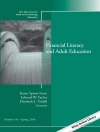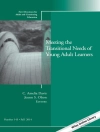Within higher education, world-class universities are regarded as elite research universities and play a critical role in developing human resources and generating new knowledge in the context of a knowledge-based economy. Governments around the world have made the operation of their universities at the cutting edge of intellectual and scientific development their policy priority; and top universities make every effort to compete at this global stage. “Paths to A World-Class University” provides insights into recent and ongoing experiences of building world-class universities, both at a national level and at an institutional level. It collects fifteen essays, most of which originated from papers presented at “The Third International Conference on World-Class Universities”, held in November 2009 in Shanghai, China, and organised by the Center for World-Class Universities of Shanghai Jiao Tong University. Divided into two parts, the book: – focuses on the role of world-class universities in national systems; and – looks at institutional experiences and lessons in building world-class universities. This book not only represents a contribution to the ongoing discussion on the topic of building world-class universities, but can be seen a continuation of the previous two volumes on this topic – “World-Class Universities and Ranking: Aiming beyond Status” and “The World-Class University as Part of a New Higher Education Paradigm: From Institutional Qualities to Systemic Excellence”. All three books will be useful reading for students and academics in higher education generally, in addition to policy makers and informed practitioners.
Table des matières
Acknowledgements ; Paths to a World-Class University – Jamil Salmi and Nian Cai Liu; Section I: The Role of World-Class Universities in National Systems; 1. Global Perspectives and Strategies of Asia-Pacific Research Universities – Simon Marginson; 2. The Role of Elite Universities in National Higher Education and Research Systems, and the Challenges of Prosecuting the Case for Concentrating Public Investment in their Development in Australia – Michael Gallagher; 3. The “Global 30” and the Consequences of Selecting “World-Class Universities” in Japan – Akiyoshi Yonezawa; 4. Is Developing Elite Universities a Top Priority Agenda for Higher Education in Romania?: Analyses of the Evolution of the Higher Education Sector’s Priorities and Romanian Top University Strategies in Developing Excellence – Paul Serban Agachi, Camelia Moraru, Romana Cucuruzan and Adrian Curaj; 5. The Role of Research University in the Third World: A Case Study of the National University of Colombia – Natalia Ruiz-Rodgers; 6. Towards a European Approach to Ranking – Marijk van der Wende; Section II: Institutional Practices of Building World-Class Universities; 7. Effective University Management in Difficult Times – John T. Casteen III; 8. The Role of Elite Universities in Africa: A Case Study of the University of Yaounde I in Cameroon – Etienne Zé Amvela; 9. Riding the Globalization Wave: EPFL’s Strategy and Achievements – Dimitrios Noukakis, Jean-François Ricci and Martin Detterli; 10. World-Class Research Performance through Research Focus and the Strategic Use of Research Resources – Chris Marlin; 11. Emergence of Asian Universities as Centres of New Knowledge Generation and a Base for National Competitiveness: A Case Study of the National University of Singapore – Seeram Ramakrishna and Venni Venkata Krishna; 12. Strategy for Impact: The University Global Partnership Network – Colin B. Grant; 13. Becoming a World-renowned Health Sciences Centre in the Era of the Global Market:Institutional Effort and Policies for the Promotion of Academic Talent – Harold M. Maurer and Jialin C. Zheng; 14. Developing a Quality Culture to Become a World-Class University – Jacques Lanarès; 15. Transformation towards a World-Class University: Action and Prospects in the Case of King Abdulaziz University – Osama S. Tayeb and Zoheir A. Damanhouri; About the Authors












